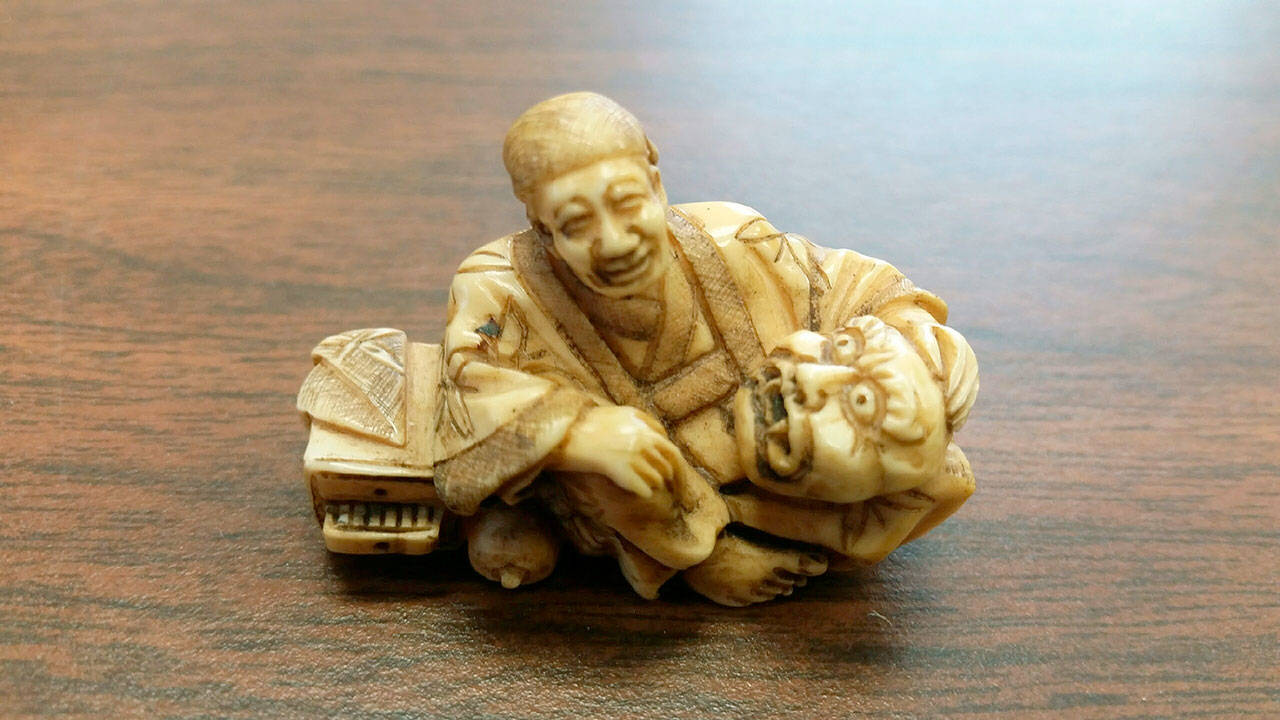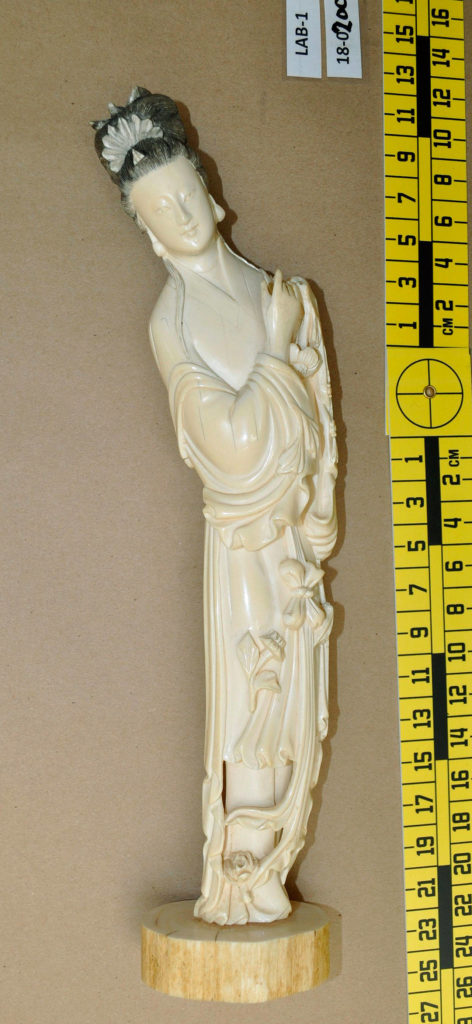EVERETT — An undercover detective replied to an online ad for Japanese carvings in late 2017.
She walked into a home near Everett, where “nearly every surface in the dining and living room areas was covered in trays containing what appeared to be carved ivory,” according to new charging papers.
Some trays were labeled unambiguously: Ivory.
Months earlier, a new anti-smuggling law made it a felony to buy, sell or trade parts of vulnerable species of elephant, rhino, tiger, lion and others. Donald Rooney, 71, of the Everett area, became one of the first two people to be charged under the new law Tuesday. The other is a Seattle man accused of selling a carved figurine for $1,300 to an out-of-state buyer, in an unrelated case.
At the Everett man’s home, detectives with the state Department of Fish & Wildlife seized 1,600 items that they suspected may contain ivory, according to the state attorney general’s office.
The case began with an ad on Craigslist. “Old Japanese Carvings — Netsukes for Sale $35 (Lynnwood).”
Netsuke are Japanese miniature carvings often made out of ivory or wood. It works as a code word for traffickers who don’t want to flaunt the fact that they’re selling ivory.
In the ad, Rooney claimed to have 60 miniatures, with prices ranging from $35 to $150, according to the charges. A detective arrived in plainclothes at Rooney’s home — or what he claimed was his home. Property records suggest he lived nearby in a different home. He met the potential buyer outside, while still on the phone with her. They walked into the dark home as he told her he’d inherited the collection from his brother and sister-in-law. The detective took photos, saying she wanted to show them to her friend in Japan.
“Rooney told (the detective) he had already sold a good number of the ivory pieces and wished (the detective) could have seen how many he had before,” the charges say. “Rooney said he believed he had over 1,000 pieces before he started selling them.”
Some items he’d sold on eBay, by labeling them as bone, he reportedly said. The detective asked if that was legal. He replied that it wasn’t illegal, but that eBay didn’t want to be sued over sales, according to the charges.
The detective picked out three figurines. She paid $300 cash. Rooney wrapped them in tissue, according to the charges. She walked out with her bag of ivory within 20 minutes of arriving.
Charging papers only describe the three trinkets: “kabuki with rotating face;” “3 men with bowl;” “old man holding mask.”
Tests on the pieces showed they had African elephant DNA, according to the charges.
Ivory poaching — coupled with human expansion — has caused the population of African elephants to drop by about 100,000 in the past decade or so.
The state attorney general’s office filed charges Tuesday in Snohomish County Superior Court. Rooney is accused of violating the Washington Animal Trafficking Act.
“Illegal poaching and trafficking is decimating wildlife species across the globe, and we applaud the attorney general’s office for filing these criminal charges,” said Dan Paul, the Washington senior director for the Humane Society of the United States, in a written statement.
It’s still legal to own items from endangered species if they were received before voters created the law by initiative in 2015. There are exceptions for antiques and musical instruments, or to transfer heirlooms to a museum.
Fish & Wildlife officials hope to make wildlife trafficking less lucrative by dismantling the market.
On Saturday, the Woodland Park Zoo will host an event, Toss the Tusk, for people to give up items made from endangered species. Old trophies and trinkets can be brought to the zoo’s south gate 10 a.m. to 2 p.m. at 5500 Phinney Ave N. in Seattle.
Caleb Hutton: 425-339-3454; chutton@heraldnet.com. Twitter: @snocaleb.
Talk to us
> Give us your news tips.
> Send us a letter to the editor.
> More Herald contact information.


























